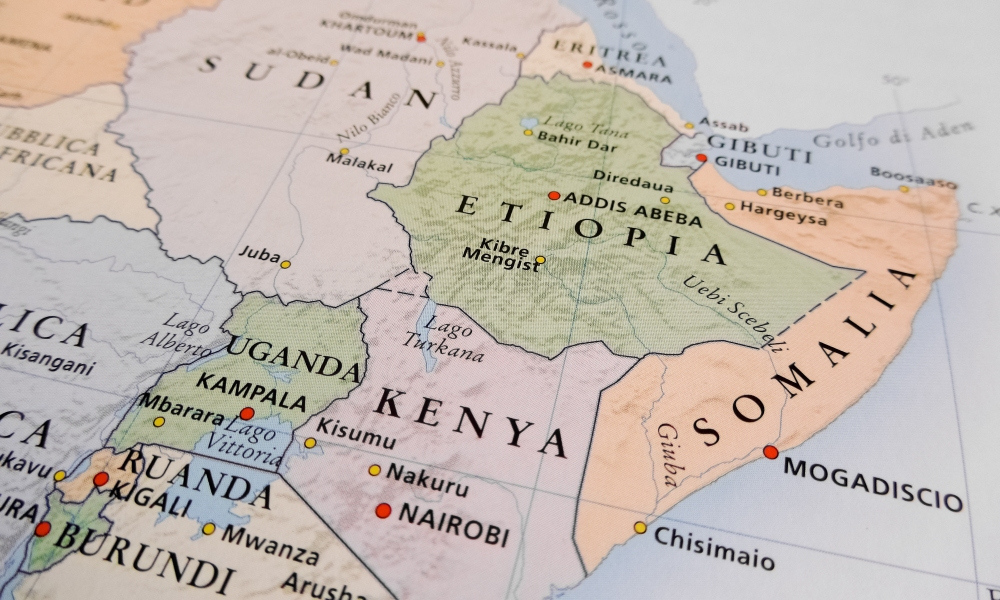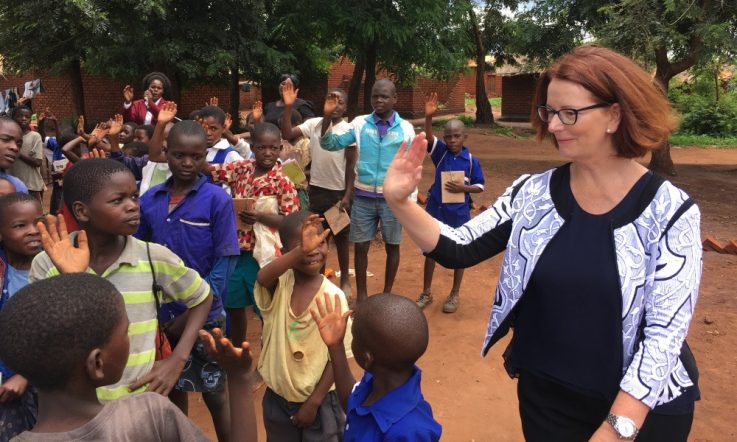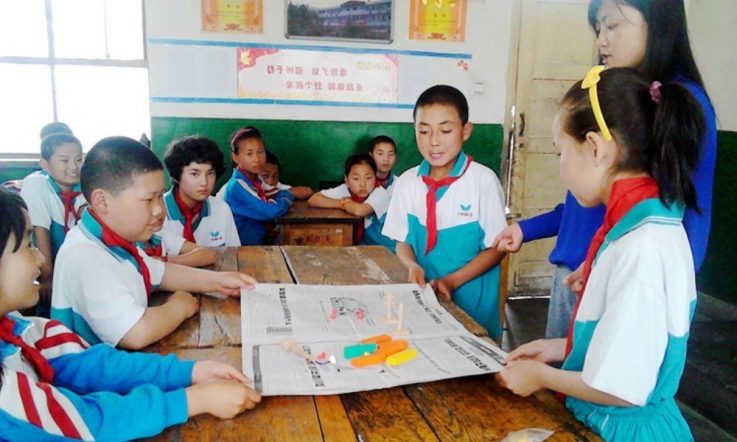Hello, I'm Jo Earp and you're listening to an episode of the Global Education podcast series, brought to you by Teacher magazine. Today I'm talking to Dr Mary Kimani, a Research Fellow at the Australian Council for Educational Research (ACER), about school support for refugee students from Sub-Saharan Africa. She has been exploring student success stories through interviews with youngsters who arrived in Australia from Rwanda, Burundi, Southern Sudan, Somalia and the Democratic Republic of Congo, also their teachers, and principals. I started by asking about her study's definition of 'success' and the two overriding themes that came from the student responses.
Mary Kimani: What I meant by success is looking at students who have been able to go through high school, at least two years of high school, and they have been admitted to one of the universities here in Melbourne.
… One of the things that came very clearly from my interviews with the students is their level of resilience, as well as optimism. They talked about wanting to further their education, and to get a university education. Probably this could be explained by the kinds of experiences that they went through during their refugee life. Many of them talked about living in different countries and as a result they might have developed this resilience and the fact they're able to persist on something against all odds.
In this case, the particular students that we're talking about, they had many odds: low literacy in their mother language as well as in English, low proficiency in the English language and, of course, coming to a new country where they don't know the country, they don't know the system of education.
All these were working against them but they often talked about the fact that they were able to go through the refugee camps in the different countries that they had to go through and so they had to persevere to be able to reach where they had reached.
Optimism, in the sense that they looked at the new country that they have 'acquired' (so to say), as their hope. They looked and saw a future …
JE: They didn't want to be seen as victims, they wanted to move on from that. This links into one of the bits of feedback that you got from speaking to them, that information on pathways and next steps was really important to them, wasn't it?
MK: Yes, I think a few of them, and again we need to be specific in the sense that the students that I was interviewing were students who have 'made it', so we can't generalise, it's just a small number of students. Therefore, they have succeeded and they are looking back at their success.
They did talk about the kind of counselling that they were provided with at the beginning when they came to Australia and they mentioned about it being more [about] helping them cope with past traumas, past experiences, making them 'learn' about the country – and they'd say they were told about going for holidays ... and they were becoming a bit impatient. One of the students said: 'That's not what I wanted, I wanted to hear about what pathways there are for me, what are the options, how can I go to school, how can I make it in school and pursue my dreams.'
… The other thing is they faulted the counselling processes. As one of the students said, they expected to give them brochures, information and they were supposed to read for themselves and make decisions for themselves.
JE: This was career counselling wasn't it?
MK: Yes, career counselling. But, from where they come from – being African, I think the adults have more say in what really children get to do and what they become. Having come from an environment and a background where they are provided with all the information and an adult helps them to make the necessary decisions – so, they make suggestions, they're very directive in the kind of advice they give.
But, in this case [in Australia], they found the kind of advice very laid back, because it's like – they give you information, you're supposed to read for yourself, understand the information and move on, make your decision. But, of course the level of English that is in that information is definitely higher than what they could comprehend. Also that's not their way of life – they're used to being [directed] what to do.
JE: Given more direction and more suggestions, rather than just saying 'well, it's completely up to you what you'd like to do'
MK: Yes, and they don't even want to be told. It's like I'm saying, this is what there is and this is what I would advise you to do. So, it's more than just even telling ‘these are my suggestions' - it's saying 'this is what is available, but this is what I would advise you to do.' So, that's the kind of advice they were looking for.
JE: Oh, that's interesting, so perhaps just being aware of that culture difference then in what happens with career counselling.
One of the things I did want to speak about, in terms of the teacher characteristics, the students you spoke to spoke about the teachers who'd supported them. And they highlighted several characteristics, if you like. Can you just take us through some of the responses?
MK: … Now, in terms of teachers, students talked about the critical teachers that were in their lives and in the study that I did I called it 'this teacher was different', because that is the expression that they talked about. They talked about this teacher being caring and they were talking about teachers going beyond the teaching aspect but even getting to know what were some of the other struggles that they are going through.
Teachers who give them more time in class. Even if they weren't able to express themselves, the teacher would still give them the opportunity to talk. Although, sometimes that would need to be balanced because giving them a chance to talk would embarrass them in class. But, just that patience to know that they are not good in English, but I'm willing to wait and give you more time to express yourself.
… They talked about teachers who would break the task into more manageable tasks – I guess it's good practice for any teacher, where they would explain to them, give them a smaller task and graduate them to bigger tasks as they continued to progress.
But, I think the greatest [influence] was the teachers who believed in them and who saw the potential beyond what the students could demonstrate at the initial stage after they joined the school. And saying 'this child has more potential, it's only that yes they struggle with language, they're struggling to fit in a new environment, but we can support them and help them adjust and be able to tap the potential that is in them.'
... They talked about teachers who went beyond the classroom walls to find out how they're doing, and particularly talked about teachers who they were working with in their homework clubs, more so because the teachers would have one-on-one time and they would support them, they would be able to know what they were struggling with and then support them through that process.
JE: Finally then, and we can't generalise - you've mentioned this is a small scale study with just 10 students and they've experienced success - there was another interesting pointer though for teachers in terms of using that strength and resilience that the refugee students had developed based on past experience, wasn't there?
MK: Yes, I think it's probably what they call the strengths-based approach - where we're not looking at the deficits of students but we're looking at what is it that they are bringing into the learning environment that could be integrated within the learning process, so that we can validate what they know and make them feel they're respected and [that] they have something to offer within the learning environment.
And, just like the [student] characteristics that we were talking about with the resilience and optimism – it means that these students can stay on a task for a longer period, so long as they understand 'How does this task connect with my goal? ‘I want to succeed in life. I want to succeed academically, so if I'm on this task then I can stay on it because it will help me achieve my goals.'
JE: That's great. Well, there are some fascinating insights there from the stories that you've collected from students that are refugees from sub-Saharan Africa – the study taking place in Victoria. Thanks ever so much for talking to Teacher today.
MK: Thank you, for the privilege.
That's all for this episode of Global Education. To download all of our podcasts for free, visit acer.ac/teacheritunes or www.soundcloud.com/teacher-acer. To access the latest articles, videos and infographics visit www.teachermagazine.com.au.
When planning a unit of work, do you think about how you can play to the strength of students?
When explaining a task to students, are you able to explain the relevance to their short-, medium- or longer-term goals?
Think about your conversations with students during the lesson: do you give them enough time to consider the question and form a response, or do you expect them to answer straight away?



